Mute
For those trying to navigate the sea of material unearthed by RichardH. Kirk, it's worth noting that unlike the simultaneous reissue ofSandoz'
Digital Lifeforms,
Earlier/Later features a monsterous 32 of 33 tracks previously available to the public. Additionally, unlike the
Unreleased Projectscompilations, the music is all presented -as- Richard H. Kirk andironically sounds more like a mix tape than a collection of recordingsunder various aliases. All material here was recorded during activeperiods of Cabaret Voltaire, between 1974 and 1989, and therefore, muchof the music resembles CV material from repsected years. Recorded tocassette tape and mostly forgotten, the fidelity is showing a littleware. For any CV fans who remember riding public transportation homefrom the record shop listening to shoddy cassette releases on awalkman, the sound is remarkably familiar, and not unwelcome. Thecollection opens with the
Later disc, and tracks from the "bigfunk" era (arguably 1982-1986), popularly characterized by beefy drummachines, electronic cowbell, and floods of vocal samples. The chunky10+ minute "Never Lose Your Shadow" is a pleasant shock, as it featuresa rare appearance of Kirk's singing voice atop music that could haveeasily graced
The Crackdown, as is the cover of Can's "I Want More," another vocal tune which fits more into the early techno post-
Codeperiod, where deep electronic bass sounds and smooth synths flourishwith subtle, faster-paced drum machines. While tracks like 1985's "OnFire" resemble what could easily be an early prototype of CV's"Sleepwalk," the immedtiately following "Digital Globe," could be anearly prototype of 1989's "Hypnotised." Latin piano & Miami bassstyle techno is the primary influence of 1988/89's "Latin/MYBM," apeppy track which is about nothing other than fun, but it's immediatelyfollowed by "Martyrs of Palestine," a track which is probably eveneerier in 2004 than its original release on a Rough Trade 12" in 1986.It's easy to speculate what kept these tracks buried for so long—eithercontractual obligations to EMI or Virgin, Kirk's devotion to the CVumbrella, or his personal choice—the music's availability now for a diehard CV/Kirk fan is far more important. The second disc,
Earlieris 20 tracks of early destruction, mostly between 1974 and 1981,challenging the institution of music with tape cut ups, non-musicalsounds, distorted spoken samples, abrasive saxophone, and even atrashed piano. The tracks here are fantastic eye-openers, seamlesslythreadded like a primitive mix tape where the compiler was tooimpatient to let the opening and closing silence be heard. Beats arecreated by hand cut loops and delayed effects rather than drum machineson earlier tracks like 1974's "Cosmic Override 1," and 1975's brief"Radio Silence," while the infrequent inclusion of a track from themid-1980s, like 1985's "International Smashface Detective Theme," and"All Nationalities," are not typical beat fanfare, but more likevarious thematic instrumental CV album tracks from the time. Kirk'sreluctance to new technologies and letting go of the noise is apparentin the odd track from 1981, "Immaculate Riot," where for one of thefirst times, the bridge is between the noisier earlier stages of theKirk/CV timeline and the early beat period is strikingly clear. Alongwith the other recent collections of unreleased material,
Earlier/Later is an essential key to the history of Kirk and Cabaret Voltaire. -
samples:
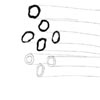 Here's another gem of miniature electro acoustics from Bowindo, the Italian label that, within only a few years of activity, has become a bright beacon on the Mediterranean front, producing a modest string of thoroughly uncompromising releases, all of which will be featured on the Brain in coming weeks.
Here's another gem of miniature electro acoustics from Bowindo, the Italian label that, within only a few years of activity, has become a bright beacon on the Mediterranean front, producing a modest string of thoroughly uncompromising releases, all of which will be featured on the Brain in coming weeks.


 Although I've still found much to enjoy on the new Fennesz record, Ihad to sympathize with Lucas' review in last week's Brain. I too havebeen struck by just how much of the artist's output seems to relysquarely on the simple act of obscuring his sound sources. Fennesz'scontinuing reinvention of shoegaze doesthrow his guitar to the front of the mix, but places it immediately inthe service of the walls of distortion and powerbook fuckery thatexist, it would seem, only to inflate the instrument into theshimmering pools of sound-dust that coat his recent work. Funny thatthe guitar, the instrument that has come to define Fennesz's style andgrant him immediate mention anytime stringed instruments go digital(this being no exception), has been the one thing to suffer most in hiswork. What I think Lucas was getting at is that all of the opulence,all the "dressing" on a Fennesz record, has taken the place oftechnical innovation and, sometimes, even compositional discipline. Andwhile I find both parties equally irresistible, I can't help but thinkthat Fennesz has taken guitar, for the electronic medium, whereStereolab took it within the rock/pop domain, their interchangeabledriving two-chord anthems now as predictable as the Viennese's grainy,melancholic churn. Mitchell Akiyama is a Canadian musician oftengranted the Fennesz comparison because of the way he works through asimilar method of sound disintegration, a practice made explicit in thetitle of his last release as one half of Desormais, Iambrokenandremade....Lucas liked that record a lot, the reason (I gather) being thecomplexity and risky nature of duo's rigorous reassembling process.Akiyama and Joshua Treble (whose solo disc on Intr_version is anotherrecent wonder) took what would have been impressive lines of nakedguitar, piano, and percussion and set about an intricate splicingmethod, reshaping their parts into elegant, labyrinthine hulks of soundthat opened up onto the process of their construction (or previousdeconstruction) but were also propelled by a new logic, bigger than anyone constituent. Akiyama's newest solo release doesn't pack quite theepic sweep of that prior work, but it does show a similar interest inallowing each instrument a unique and resonant spot within the soundpalette, regardless of the digital manipulations applied. If Night is a Weedcould be Akiyama's vision of chamber-glitch, the music growing out ofminimalist trumpet, piano and cello patterns, lent enough room to lettheir own often rigorous compositions show. The production keepscertain lines tactile and wonderfully present while others bend wildlyinto sunny aerials, this time glimpsed within quiet door and windowframes rather than Iambroken's jagged, industrial-scaledfoundations. The majority of the tracks feature a surprising opennessin which instruments engage in call-and-response with the effects-ladenghosts of themselves. Subtle builds lead from barren piano and cellointeractions to carefully-melded noise ascensions. One piece, dedicatedto Steve Reich, beautifully suggests his Music for Large Ensemble,its clipped, cyclical melodies rendered weightless by only a finedusting of static. That Akiyama can so readily duplicate his elder'sdelicate technique, place (even create) it within the record's"manipulated" context, and not have the result sound tired by eitherera's standards is testament alone to the beauty of this record.
Although I've still found much to enjoy on the new Fennesz record, Ihad to sympathize with Lucas' review in last week's Brain. I too havebeen struck by just how much of the artist's output seems to relysquarely on the simple act of obscuring his sound sources. Fennesz'scontinuing reinvention of shoegaze doesthrow his guitar to the front of the mix, but places it immediately inthe service of the walls of distortion and powerbook fuckery thatexist, it would seem, only to inflate the instrument into theshimmering pools of sound-dust that coat his recent work. Funny thatthe guitar, the instrument that has come to define Fennesz's style andgrant him immediate mention anytime stringed instruments go digital(this being no exception), has been the one thing to suffer most in hiswork. What I think Lucas was getting at is that all of the opulence,all the "dressing" on a Fennesz record, has taken the place oftechnical innovation and, sometimes, even compositional discipline. Andwhile I find both parties equally irresistible, I can't help but thinkthat Fennesz has taken guitar, for the electronic medium, whereStereolab took it within the rock/pop domain, their interchangeabledriving two-chord anthems now as predictable as the Viennese's grainy,melancholic churn. Mitchell Akiyama is a Canadian musician oftengranted the Fennesz comparison because of the way he works through asimilar method of sound disintegration, a practice made explicit in thetitle of his last release as one half of Desormais, Iambrokenandremade....Lucas liked that record a lot, the reason (I gather) being thecomplexity and risky nature of duo's rigorous reassembling process.Akiyama and Joshua Treble (whose solo disc on Intr_version is anotherrecent wonder) took what would have been impressive lines of nakedguitar, piano, and percussion and set about an intricate splicingmethod, reshaping their parts into elegant, labyrinthine hulks of soundthat opened up onto the process of their construction (or previousdeconstruction) but were also propelled by a new logic, bigger than anyone constituent. Akiyama's newest solo release doesn't pack quite theepic sweep of that prior work, but it does show a similar interest inallowing each instrument a unique and resonant spot within the soundpalette, regardless of the digital manipulations applied. If Night is a Weedcould be Akiyama's vision of chamber-glitch, the music growing out ofminimalist trumpet, piano and cello patterns, lent enough room to lettheir own often rigorous compositions show. The production keepscertain lines tactile and wonderfully present while others bend wildlyinto sunny aerials, this time glimpsed within quiet door and windowframes rather than Iambroken's jagged, industrial-scaledfoundations. The majority of the tracks feature a surprising opennessin which instruments engage in call-and-response with the effects-ladenghosts of themselves. Subtle builds lead from barren piano and cellointeractions to carefully-melded noise ascensions. One piece, dedicatedto Steve Reich, beautifully suggests his Music for Large Ensemble,its clipped, cyclical melodies rendered weightless by only a finedusting of static. That Akiyama can so readily duplicate his elder'sdelicate technique, place (even create) it within the record's"manipulated" context, and not have the result sound tired by eitherera's standards is testament alone to the beauty of this record. 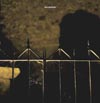 Late at night in the USA there's this syndicated talk show all over AM radio called Coast to Coast AM.It's all about the paranormal: making contact with UFOs, the dead andbeyond, and other mystic things that science mysteriously avoids.Perhaps some of it is true, perhaps it's all a hoax, but it sure makesfor some addictive entertainment. For the latest Bass Communionrelease, Steven Wilson has constructed a series of amazing soniclandscapes inspired by Konstantin Raudive's attempts in the 1970s torecord ghosts. Similar to Coast to Coast AM, Wilson could beeither completely serious about reinterpreting ectoplasmic audio or itcould just be a hoax in its own way. Either way, the output isphenomenal and undoubtedly multidimensional. Wilson's interpretationsof the dead are constructed from munching the sounds of choral voices,scratchy old vinyl, wind, piano, guitar, flute, and variousunrecognizable things into a dense soup of thunderous roars, cracklesand landscapes that are rich with visual imagery. Speakers warble,objects in the room vibrate, earwax loosens, roommates come wanderingin, but nothing can disturb the serenity. Of course, it also helps thatWilson's been hanging out with Jonathan Coleclough and Colin Potterrecently, two of the Jedi Masters of modern drone. What Wilson bringsto the drones is a rich musical history, as he's "played" music inbands like Porcupine Tree and No Man. Calling this album a work ofdrones is somewhat limiting, as melodic movements permeate the disc.Whether it's a sparse one-note melody on "Part 1" or symphonic-likegrandness on "Part 4," never does the melody simply sit idly andsustain. The music can be so quiet however, it's effective to listeneither with headphones or high volumes in complete darkness. Ideally, avisual component to be projected on a large screen with superb digitalsound would be a great place to experience this amazing album, but fornow, we can lie back and dream it ourselves.
Late at night in the USA there's this syndicated talk show all over AM radio called Coast to Coast AM.It's all about the paranormal: making contact with UFOs, the dead andbeyond, and other mystic things that science mysteriously avoids.Perhaps some of it is true, perhaps it's all a hoax, but it sure makesfor some addictive entertainment. For the latest Bass Communionrelease, Steven Wilson has constructed a series of amazing soniclandscapes inspired by Konstantin Raudive's attempts in the 1970s torecord ghosts. Similar to Coast to Coast AM, Wilson could beeither completely serious about reinterpreting ectoplasmic audio or itcould just be a hoax in its own way. Either way, the output isphenomenal and undoubtedly multidimensional. Wilson's interpretationsof the dead are constructed from munching the sounds of choral voices,scratchy old vinyl, wind, piano, guitar, flute, and variousunrecognizable things into a dense soup of thunderous roars, cracklesand landscapes that are rich with visual imagery. Speakers warble,objects in the room vibrate, earwax loosens, roommates come wanderingin, but nothing can disturb the serenity. Of course, it also helps thatWilson's been hanging out with Jonathan Coleclough and Colin Potterrecently, two of the Jedi Masters of modern drone. What Wilson bringsto the drones is a rich musical history, as he's "played" music inbands like Porcupine Tree and No Man. Calling this album a work ofdrones is somewhat limiting, as melodic movements permeate the disc.Whether it's a sparse one-note melody on "Part 1" or symphonic-likegrandness on "Part 4," never does the melody simply sit idly andsustain. The music can be so quiet however, it's effective to listeneither with headphones or high volumes in complete darkness. Ideally, avisual component to be projected on a large screen with superb digitalsound would be a great place to experience this amazing album, but fornow, we can lie back and dream it ourselves. For those trying to navigate the sea of material unearthed by RichardH. Kirk, it's worth noting that unlike the simultaneous reissue ofSandoz' Digital Lifeforms, Earlier/Later features a monsterous 32 of 33 tracks previously available to the public. Additionally, unlike the Unreleased Projectscompilations, the music is all presented -as- Richard H. Kirk andironically sounds more like a mix tape than a collection of recordingsunder various aliases. All material here was recorded during activeperiods of Cabaret Voltaire, between 1974 and 1989, and therefore, muchof the music resembles CV material from repsected years. Recorded tocassette tape and mostly forgotten, the fidelity is showing a littleware. For any CV fans who remember riding public transportation homefrom the record shop listening to shoddy cassette releases on awalkman, the sound is remarkably familiar, and not unwelcome. Thecollection opens with the Later disc, and tracks from the "bigfunk" era (arguably 1982-1986), popularly characterized by beefy drummachines, electronic cowbell, and floods of vocal samples. The chunky10+ minute "Never Lose Your Shadow" is a pleasant shock, as it featuresa rare appearance of Kirk's singing voice atop music that could haveeasily graced The Crackdown, as is the cover of Can's "I Want More," another vocal tune which fits more into the early techno post-Codeperiod, where deep electronic bass sounds and smooth synths flourishwith subtle, faster-paced drum machines. While tracks like 1985's "OnFire" resemble what could easily be an early prototype of CV's"Sleepwalk," the immedtiately following "Digital Globe," could be anearly prototype of 1989's "Hypnotised." Latin piano & Miami bassstyle techno is the primary influence of 1988/89's "Latin/MYBM," apeppy track which is about nothing other than fun, but it's immediatelyfollowed by "Martyrs of Palestine," a track which is probably eveneerier in 2004 than its original release on a Rough Trade 12" in 1986.It's easy to speculate what kept these tracks buried for so long—eithercontractual obligations to EMI or Virgin, Kirk's devotion to the CVumbrella, or his personal choice—the music's availability now for a diehard CV/Kirk fan is far more important. The second disc, Earlieris 20 tracks of early destruction, mostly between 1974 and 1981,challenging the institution of music with tape cut ups, non-musicalsounds, distorted spoken samples, abrasive saxophone, and even atrashed piano. The tracks here are fantastic eye-openers, seamlesslythreadded like a primitive mix tape where the compiler was tooimpatient to let the opening and closing silence be heard. Beats arecreated by hand cut loops and delayed effects rather than drum machineson earlier tracks like 1974's "Cosmic Override 1," and 1975's brief"Radio Silence," while the infrequent inclusion of a track from themid-1980s, like 1985's "International Smashface Detective Theme," and"All Nationalities," are not typical beat fanfare, but more likevarious thematic instrumental CV album tracks from the time. Kirk'sreluctance to new technologies and letting go of the noise is apparentin the odd track from 1981, "Immaculate Riot," where for one of thefirst times, the bridge is between the noisier earlier stages of theKirk/CV timeline and the early beat period is strikingly clear. Alongwith the other recent collections of unreleased material, Earlier/Later is an essential key to the history of Kirk and Cabaret Voltaire. -
For those trying to navigate the sea of material unearthed by RichardH. Kirk, it's worth noting that unlike the simultaneous reissue ofSandoz' Digital Lifeforms, Earlier/Later features a monsterous 32 of 33 tracks previously available to the public. Additionally, unlike the Unreleased Projectscompilations, the music is all presented -as- Richard H. Kirk andironically sounds more like a mix tape than a collection of recordingsunder various aliases. All material here was recorded during activeperiods of Cabaret Voltaire, between 1974 and 1989, and therefore, muchof the music resembles CV material from repsected years. Recorded tocassette tape and mostly forgotten, the fidelity is showing a littleware. For any CV fans who remember riding public transportation homefrom the record shop listening to shoddy cassette releases on awalkman, the sound is remarkably familiar, and not unwelcome. Thecollection opens with the Later disc, and tracks from the "bigfunk" era (arguably 1982-1986), popularly characterized by beefy drummachines, electronic cowbell, and floods of vocal samples. The chunky10+ minute "Never Lose Your Shadow" is a pleasant shock, as it featuresa rare appearance of Kirk's singing voice atop music that could haveeasily graced The Crackdown, as is the cover of Can's "I Want More," another vocal tune which fits more into the early techno post-Codeperiod, where deep electronic bass sounds and smooth synths flourishwith subtle, faster-paced drum machines. While tracks like 1985's "OnFire" resemble what could easily be an early prototype of CV's"Sleepwalk," the immedtiately following "Digital Globe," could be anearly prototype of 1989's "Hypnotised." Latin piano & Miami bassstyle techno is the primary influence of 1988/89's "Latin/MYBM," apeppy track which is about nothing other than fun, but it's immediatelyfollowed by "Martyrs of Palestine," a track which is probably eveneerier in 2004 than its original release on a Rough Trade 12" in 1986.It's easy to speculate what kept these tracks buried for so long—eithercontractual obligations to EMI or Virgin, Kirk's devotion to the CVumbrella, or his personal choice—the music's availability now for a diehard CV/Kirk fan is far more important. The second disc, Earlieris 20 tracks of early destruction, mostly between 1974 and 1981,challenging the institution of music with tape cut ups, non-musicalsounds, distorted spoken samples, abrasive saxophone, and even atrashed piano. The tracks here are fantastic eye-openers, seamlesslythreadded like a primitive mix tape where the compiler was tooimpatient to let the opening and closing silence be heard. Beats arecreated by hand cut loops and delayed effects rather than drum machineson earlier tracks like 1974's "Cosmic Override 1," and 1975's brief"Radio Silence," while the infrequent inclusion of a track from themid-1980s, like 1985's "International Smashface Detective Theme," and"All Nationalities," are not typical beat fanfare, but more likevarious thematic instrumental CV album tracks from the time. Kirk'sreluctance to new technologies and letting go of the noise is apparentin the odd track from 1981, "Immaculate Riot," where for one of thefirst times, the bridge is between the noisier earlier stages of theKirk/CV timeline and the early beat period is strikingly clear. Alongwith the other recent collections of unreleased material, Earlier/Later is an essential key to the history of Kirk and Cabaret Voltaire. - 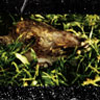 Although the first track might suggest a sound that is going to becontinually deadly and menacing, the whole of this record ends upsmelling of atmosphere and deliberation. "Let's See Who's Here andWho's Not" kicks Obedience Cutsoff with a shot of cocaine and too much pornography: the band soundstruly frightening behind their roar of percussion madness and feedbackglory and the vocalist does nothing short of conjuring up images ofdomestic violence powered by unhinged anger. There's absolutely norhythmic pulse to be found anywhere, there is no melody, and whateverlyrics are being spouted off are anything but intelligible, but theforce of Hair Police's delivery is attention-grabbing enough to keepvolume soaring and my Windbreaker at my side. Expecting another dose ofmeth-fuelled hate, I braced myself for "Obedience Cuts" and wassurprisingly let down its brevity and lack of hair-raising assaultvalue. Suddenly the trio of Robert Beatty, Mike Connelly, and TrevorTremaine descended into the pits of their stomachs and began exploringthe inner-workings of their lower intenstine. Apparently the band hasbeen eating military equipment, pots and pans, and radars because themajority of the next couple of tracks are ruled by metallic jumbles,approaching aircraft, and sirens warning the world of nuclear fallout.The seven minute "Bee Scrape" might feature some high-frequency blastsof whining pipes and the rumbling of human souls being digested byunholy demons, but the attack is nowhere near as vicious as the firsttrack had promised me. The rhythms simply aren't leaving bruises likethey should and so I sit back and enjoy the chaos instead of getting upand tearing my room apart with an axe and chainsaw. "The Empty Socket"rounds out 5 tracks of well-organized noise with a continuum of gongstrikes and dead animals flopping about in water. And then I'm greetedby the promise of snare-drum molestation when the pounding of "OpenBody" begins... and I am satisfied by its sadism. Though it be short,the absolutely mindless gurgle of voice and feedback manages tocoaelesce into a satisfyingly destructive explosion. "Full of Guts" and"Skull Mold" round the album out with a combination of the nearcollage-like "quiet" tracks and the raging homocidal mania of theabusive moments. "Full of Guts" is a particularly disturbing trackwhere the vocalist yells through what must be an underground tunnel,ranting about who knows what but sounding absolutely torn betweenhimself and his hunger for all things chaotic. I can only imagine somemuscular and sweating man dressed in oiled clothing and marked by scarspunching the walls around him until the whole structure he's containedin collapses about him and crushes is head in with a satisfying crunch.I've heard heavier and louder albums, but I can't think of anotherrecord that is anywhere near as disturbing.
Although the first track might suggest a sound that is going to becontinually deadly and menacing, the whole of this record ends upsmelling of atmosphere and deliberation. "Let's See Who's Here andWho's Not" kicks Obedience Cutsoff with a shot of cocaine and too much pornography: the band soundstruly frightening behind their roar of percussion madness and feedbackglory and the vocalist does nothing short of conjuring up images ofdomestic violence powered by unhinged anger. There's absolutely norhythmic pulse to be found anywhere, there is no melody, and whateverlyrics are being spouted off are anything but intelligible, but theforce of Hair Police's delivery is attention-grabbing enough to keepvolume soaring and my Windbreaker at my side. Expecting another dose ofmeth-fuelled hate, I braced myself for "Obedience Cuts" and wassurprisingly let down its brevity and lack of hair-raising assaultvalue. Suddenly the trio of Robert Beatty, Mike Connelly, and TrevorTremaine descended into the pits of their stomachs and began exploringthe inner-workings of their lower intenstine. Apparently the band hasbeen eating military equipment, pots and pans, and radars because themajority of the next couple of tracks are ruled by metallic jumbles,approaching aircraft, and sirens warning the world of nuclear fallout.The seven minute "Bee Scrape" might feature some high-frequency blastsof whining pipes and the rumbling of human souls being digested byunholy demons, but the attack is nowhere near as vicious as the firsttrack had promised me. The rhythms simply aren't leaving bruises likethey should and so I sit back and enjoy the chaos instead of getting upand tearing my room apart with an axe and chainsaw. "The Empty Socket"rounds out 5 tracks of well-organized noise with a continuum of gongstrikes and dead animals flopping about in water. And then I'm greetedby the promise of snare-drum molestation when the pounding of "OpenBody" begins... and I am satisfied by its sadism. Though it be short,the absolutely mindless gurgle of voice and feedback manages tocoaelesce into a satisfyingly destructive explosion. "Full of Guts" and"Skull Mold" round the album out with a combination of the nearcollage-like "quiet" tracks and the raging homocidal mania of theabusive moments. "Full of Guts" is a particularly disturbing trackwhere the vocalist yells through what must be an underground tunnel,ranting about who knows what but sounding absolutely torn betweenhimself and his hunger for all things chaotic. I can only imagine somemuscular and sweating man dressed in oiled clothing and marked by scarspunching the walls around him until the whole structure he's containedin collapses about him and crushes is head in with a satisfying crunch.I've heard heavier and louder albums, but I can't think of anotherrecord that is anywhere near as disturbing. 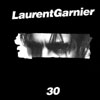 For the most part, full-length techno albums suffer from two fatalflaws. They either sound like a slapped-together 12" singles collectionor they shed harsh light on the weaknesses of the producer outside oftheir 4/4 forte. Reissued this year, 30,Garnier's 1997 artist album, dodges both bullets with a balancedassortment of dancefloor killers and bedroom groovers. This statementshould come as no surprise to fans of his F Communications label, whichboasts countless releases from this former Hacienda DJ along with otheracclaimed dance acts such as Llorca, Mr. Oizo, and Jori Hulkkonen. Thestorming yet funky "Flashback" recalls acid house-era Psychic TV withits dominating bassline and repetitive echoey vocals. "Sweet Mellow D"has a certain Detroit charm, indulging in nearly four minutes of TB-303bass and syrupy pads before the kick pattern emerges, only to drop inand out on Garnier's whim. On "The Hoe" Garnier lets a little humorinto the mix, a quality that is uncharacteristic of most technoproducers. What makes this album worthwhile is the inclusion of theclassic "Crispy Bacon," an acidic warehouse stomper that both technoenthusiasts and DJ newbies alike should have in their crates. As Mutecontinues to reissue albums from industrial and experimental pioneers,I find it refreshing to see the same treatment being given to techno.
For the most part, full-length techno albums suffer from two fatalflaws. They either sound like a slapped-together 12" singles collectionor they shed harsh light on the weaknesses of the producer outside oftheir 4/4 forte. Reissued this year, 30,Garnier's 1997 artist album, dodges both bullets with a balancedassortment of dancefloor killers and bedroom groovers. This statementshould come as no surprise to fans of his F Communications label, whichboasts countless releases from this former Hacienda DJ along with otheracclaimed dance acts such as Llorca, Mr. Oizo, and Jori Hulkkonen. Thestorming yet funky "Flashback" recalls acid house-era Psychic TV withits dominating bassline and repetitive echoey vocals. "Sweet Mellow D"has a certain Detroit charm, indulging in nearly four minutes of TB-303bass and syrupy pads before the kick pattern emerges, only to drop inand out on Garnier's whim. On "The Hoe" Garnier lets a little humorinto the mix, a quality that is uncharacteristic of most technoproducers. What makes this album worthwhile is the inclusion of theclassic "Crispy Bacon," an acidic warehouse stomper that both technoenthusiasts and DJ newbies alike should have in their crates. As Mutecontinues to reissue albums from industrial and experimental pioneers,I find it refreshing to see the same treatment being given to techno.  Instrumental music is often the realm of expression that succeeds wherewords fail. The use of purely instrumental music, when usedintelligently and passionately, can convey body language, emotions, andintensity in a more direct way than words could. This music bypassesthe prejudices, associations, and limitations of language, skipping theanalytical brain entirely and instead appealing to the heart, lookingto provoke a physical reaction that will reproduce the experience forthe listener. This is why instrumental music is so adept (and sofrequently used) to capture the feelings produced by vast geographiesand scenery. It succeeds where complex explorations of soil samples andgeological studies on comparative ecosystems would be woefullyunhelpful. Recorded at the Mosfellsbaer studio in Iceland at the inviteof Sigur R?s and M?m, In a Safe Placeseems to bear the starry eyed wonder of a first time visitor to alandscape radically different from any previous experiences. Theopening track, "Window," unfolds with the bright, melodic sounds of anorgan, keening in a deeply reverential manner, implying endless wonderthe sights that are filling this new environment. The album is a mix ofcomfortable rock with crisp, electronic additions that cannot help butbe evocative of a kind of pastoral peacefulness. "Another Day" churnsand rolls with synthesized percussion along infinitely deep chimes ofthe organ, which sustain for a moment before dissipating like warmbreath giving way to chilly air. There is a crystalline starkness tothe song, however it comes off neither distant nor aloof, but as apleasant journey when the song begins its crescendo and strings swellbehind it, giving added weight to the delicate arrangement. Immediatelyfollowing is "Streamside," rooted in a dexterous turn with the acousticguitar and the accordion, the track brings the ethereal strains of"Another Day" back to earth, and elemental solace, like a warming fire.The Album Leaf (which is entirely the work of Jimmy LaValle) along withguest vocalists Jon Thor Birgisson (Sigur R?s) and Pall Jenkins (BlackHeart Procession), occasionally segues into songs with vocals in aneffort to make the journey more palatable, perhaps. These songs, whilegood, are lacking the undistilled emotion pronounced in theinstrumentals. The possible exception being the coda to "Moss MountainTown," which features a chorus of singers in the distance, a wonderfuladdition and fitting ending to the album. In a Safe Place is adelightful postcard from an exotic land, a love letter and aninvitation, that is at times affecting and inspiring without fallinginto bashful clich?s.
Instrumental music is often the realm of expression that succeeds wherewords fail. The use of purely instrumental music, when usedintelligently and passionately, can convey body language, emotions, andintensity in a more direct way than words could. This music bypassesthe prejudices, associations, and limitations of language, skipping theanalytical brain entirely and instead appealing to the heart, lookingto provoke a physical reaction that will reproduce the experience forthe listener. This is why instrumental music is so adept (and sofrequently used) to capture the feelings produced by vast geographiesand scenery. It succeeds where complex explorations of soil samples andgeological studies on comparative ecosystems would be woefullyunhelpful. Recorded at the Mosfellsbaer studio in Iceland at the inviteof Sigur R?s and M?m, In a Safe Placeseems to bear the starry eyed wonder of a first time visitor to alandscape radically different from any previous experiences. Theopening track, "Window," unfolds with the bright, melodic sounds of anorgan, keening in a deeply reverential manner, implying endless wonderthe sights that are filling this new environment. The album is a mix ofcomfortable rock with crisp, electronic additions that cannot help butbe evocative of a kind of pastoral peacefulness. "Another Day" churnsand rolls with synthesized percussion along infinitely deep chimes ofthe organ, which sustain for a moment before dissipating like warmbreath giving way to chilly air. There is a crystalline starkness tothe song, however it comes off neither distant nor aloof, but as apleasant journey when the song begins its crescendo and strings swellbehind it, giving added weight to the delicate arrangement. Immediatelyfollowing is "Streamside," rooted in a dexterous turn with the acousticguitar and the accordion, the track brings the ethereal strains of"Another Day" back to earth, and elemental solace, like a warming fire.The Album Leaf (which is entirely the work of Jimmy LaValle) along withguest vocalists Jon Thor Birgisson (Sigur R?s) and Pall Jenkins (BlackHeart Procession), occasionally segues into songs with vocals in aneffort to make the journey more palatable, perhaps. These songs, whilegood, are lacking the undistilled emotion pronounced in theinstrumentals. The possible exception being the coda to "Moss MountainTown," which features a chorus of singers in the distance, a wonderfuladdition and fitting ending to the album. In a Safe Place is adelightful postcard from an exotic land, a love letter and aninvitation, that is at times affecting and inspiring without fallinginto bashful clich?s. 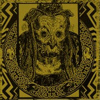 In 1988, Steven Stapleton's United Dairies label released this one-offalbum by a trio consisting of Metgumbnerbone members Sean Breadin (akaB. Sedayne), Matt Watson and Richard Rupenus (also of The NewBlockaders). A limited quantity was pressed and, for the most part, itwas overlooked and fell into an abyss of collector-talk and rumors.Thanks to the reintroduction by the new label Psychedelic Pig, and theremastering job by Colin Potter, Masstishaddhu's Shekinahcan be heard again and appreciated for its insanely mystical tone andoccult allure. Everything about this release suggests esoterichappenings: the title, the cover, and the music all recall bloodiedaltars, unfathomable rituals, and mystical learning. The low andbuzzing drone of secret instruments underscores a lava flow of nonsensechants, violins, grunts, and various percussion. The pulse of thesesounds is simultaneously warm and frigid as though through the musicthe difference between life and death was seperated. Whatever wordsmight be spoken during this procession of yearning melodies and utterlyethereal voices is perhaps best left for the Gods. The word "shekinah"is Hebrew and translates roughly as "the presence of God" or as thatlight which is visible in the presence of God (as God appeared to Mosesand others, for example). The title is highly appropriate as the twotwenty-plus minute tracks often shine in an inexplicable way. The musicburns slowly and washes the space it occupies with sweet and smokeyincense, but the interplay of the voices and instruments emanates abright and insistent energy that escapes the world of words and canonly be described, with caution, as a feeling or a presence. Whateversecrets the music holds, they are a fountain of spiritual beauty andunknowable terror. Though the album might burn brightly, it alsoconceals an old and patient terror. Listening to this record at nightgave me chills more than just once. It's as though the character of therecord changed with my dispositions: if fear was in my heart, then itwas fear Masstishaddhu played for me. If I were happy, then the joy ofthe Gods shone down upon me and relaxed every fiber of my being.Releases like this feel incredibly special not just because the musicis unique and excellent, but because the entire package works welltogether. For the first time in a long while, I wanted to sit down andgo over the titles of the songs, the artwork, and childlike rhyme thataccompanied the music. I was completely absorbed in the entirety of thealbum from beginning to end and there were times at work or when I wasout and about with friends that I found myself hungering to listen tothe music . Unfortunately, only 500 copies of this release were pressedby Psychedelic Pig, making it another far too limited release of thisalbum. While it's completely sold out from Pyschedelic Pig, there arecopies still available at various shops around the world and Internet.
In 1988, Steven Stapleton's United Dairies label released this one-offalbum by a trio consisting of Metgumbnerbone members Sean Breadin (akaB. Sedayne), Matt Watson and Richard Rupenus (also of The NewBlockaders). A limited quantity was pressed and, for the most part, itwas overlooked and fell into an abyss of collector-talk and rumors.Thanks to the reintroduction by the new label Psychedelic Pig, and theremastering job by Colin Potter, Masstishaddhu's Shekinahcan be heard again and appreciated for its insanely mystical tone andoccult allure. Everything about this release suggests esoterichappenings: the title, the cover, and the music all recall bloodiedaltars, unfathomable rituals, and mystical learning. The low andbuzzing drone of secret instruments underscores a lava flow of nonsensechants, violins, grunts, and various percussion. The pulse of thesesounds is simultaneously warm and frigid as though through the musicthe difference between life and death was seperated. Whatever wordsmight be spoken during this procession of yearning melodies and utterlyethereal voices is perhaps best left for the Gods. The word "shekinah"is Hebrew and translates roughly as "the presence of God" or as thatlight which is visible in the presence of God (as God appeared to Mosesand others, for example). The title is highly appropriate as the twotwenty-plus minute tracks often shine in an inexplicable way. The musicburns slowly and washes the space it occupies with sweet and smokeyincense, but the interplay of the voices and instruments emanates abright and insistent energy that escapes the world of words and canonly be described, with caution, as a feeling or a presence. Whateversecrets the music holds, they are a fountain of spiritual beauty andunknowable terror. Though the album might burn brightly, it alsoconceals an old and patient terror. Listening to this record at nightgave me chills more than just once. It's as though the character of therecord changed with my dispositions: if fear was in my heart, then itwas fear Masstishaddhu played for me. If I were happy, then the joy ofthe Gods shone down upon me and relaxed every fiber of my being.Releases like this feel incredibly special not just because the musicis unique and excellent, but because the entire package works welltogether. For the first time in a long while, I wanted to sit down andgo over the titles of the songs, the artwork, and childlike rhyme thataccompanied the music. I was completely absorbed in the entirety of thealbum from beginning to end and there were times at work or when I wasout and about with friends that I found myself hungering to listen tothe music . Unfortunately, only 500 copies of this release were pressedby Psychedelic Pig, making it another far too limited release of thisalbum. While it's completely sold out from Pyschedelic Pig, there arecopies still available at various shops around the world and Internet.  Try as I might, I can never come to an understanding of the fascination so many have with Christian Fennesz. His 2001 record, Endless Summer,never touched me in the same way it seemed to touch numerous criticsand fans; even repeated listens could not cure the inertness I feltwhile listening to the music. Put simply: I've always found Fennesz'salbums overrated and tame. That's why it came as a surprise to find Veniceimpressing me on some levels. As a whole the record drags on just asmuch as its predecessors have, but there are a few songs on the albumthat come out of left field and strike me to a degree that I couldnever have expected. The opener, "Rivers of Sand," is a pulsating workfull of struggling chords and bereft melodies that disappearmysteriously only emerge triumphantly on the other end of death as somefizzling and hissing memory more powerful than before. The combinationof highly-processed sound and near-pure flourishes resonates in a waythat few other songs from this composer ever have. Between songs like"River of Sand" and "Circassian" are pieces that fail to evoke anyhappiness or intrigue in me. "City of Light" is a moaning exercise inpatience that never touches on the promise of its title. While there issome peace to be found in the slowly morphing chords processed andreprocessed by Fennesz, there are few significant or lavish sounds thatmake continued listening a joy. Everything sounds like it is a little too perfectly in its place. Where Venicesucceeds is in its more bare and acoustic moments. "Circassian"emenates an ebb and flow in the electronic realm that suggestswind-swept plains and ancient civilizations. But just below that ebband flow is a distinct and gorgeous strumming, something for thepresent and familiar that sinks into my skin and makes the unknown anappreciable entity. "Laguna" works for the same reason - it's a trackdominated entirely by an acoustic guitar, but with one mild andcompletely endearing electronic effect: a bad mic. If Fennesz iscapable of melody and beauty as great as this, why he is concentratingon distortion and laptop trickery is beyond me. With the highlightssafely out of the way, I can still express my confusion about Fennesz'ssupposed brilliance. There is no doubt in my mind that he is a giftedindividual and that is capable of producing some excellent music, butthe bulk of Venice suggests to me that he hasn't even begun totap his abilities as a writer and performer. I have no doubt that thiswill be hailed as another incredible record and that fans everywherewill absolutely adore this record, but until Fennesz gets very experimental and takes a chance at a nearly unedited, unprocessed, acoustic record, I'll be getting my kicks elsewhere.
Try as I might, I can never come to an understanding of the fascination so many have with Christian Fennesz. His 2001 record, Endless Summer,never touched me in the same way it seemed to touch numerous criticsand fans; even repeated listens could not cure the inertness I feltwhile listening to the music. Put simply: I've always found Fennesz'salbums overrated and tame. That's why it came as a surprise to find Veniceimpressing me on some levels. As a whole the record drags on just asmuch as its predecessors have, but there are a few songs on the albumthat come out of left field and strike me to a degree that I couldnever have expected. The opener, "Rivers of Sand," is a pulsating workfull of struggling chords and bereft melodies that disappearmysteriously only emerge triumphantly on the other end of death as somefizzling and hissing memory more powerful than before. The combinationof highly-processed sound and near-pure flourishes resonates in a waythat few other songs from this composer ever have. Between songs like"River of Sand" and "Circassian" are pieces that fail to evoke anyhappiness or intrigue in me. "City of Light" is a moaning exercise inpatience that never touches on the promise of its title. While there issome peace to be found in the slowly morphing chords processed andreprocessed by Fennesz, there are few significant or lavish sounds thatmake continued listening a joy. Everything sounds like it is a little too perfectly in its place. Where Venicesucceeds is in its more bare and acoustic moments. "Circassian"emenates an ebb and flow in the electronic realm that suggestswind-swept plains and ancient civilizations. But just below that ebband flow is a distinct and gorgeous strumming, something for thepresent and familiar that sinks into my skin and makes the unknown anappreciable entity. "Laguna" works for the same reason - it's a trackdominated entirely by an acoustic guitar, but with one mild andcompletely endearing electronic effect: a bad mic. If Fennesz iscapable of melody and beauty as great as this, why he is concentratingon distortion and laptop trickery is beyond me. With the highlightssafely out of the way, I can still express my confusion about Fennesz'ssupposed brilliance. There is no doubt in my mind that he is a giftedindividual and that is capable of producing some excellent music, butthe bulk of Venice suggests to me that he hasn't even begun totap his abilities as a writer and performer. I have no doubt that thiswill be hailed as another incredible record and that fans everywherewill absolutely adore this record, but until Fennesz gets very experimental and takes a chance at a nearly unedited, unprocessed, acoustic record, I'll be getting my kicks elsewhere.
